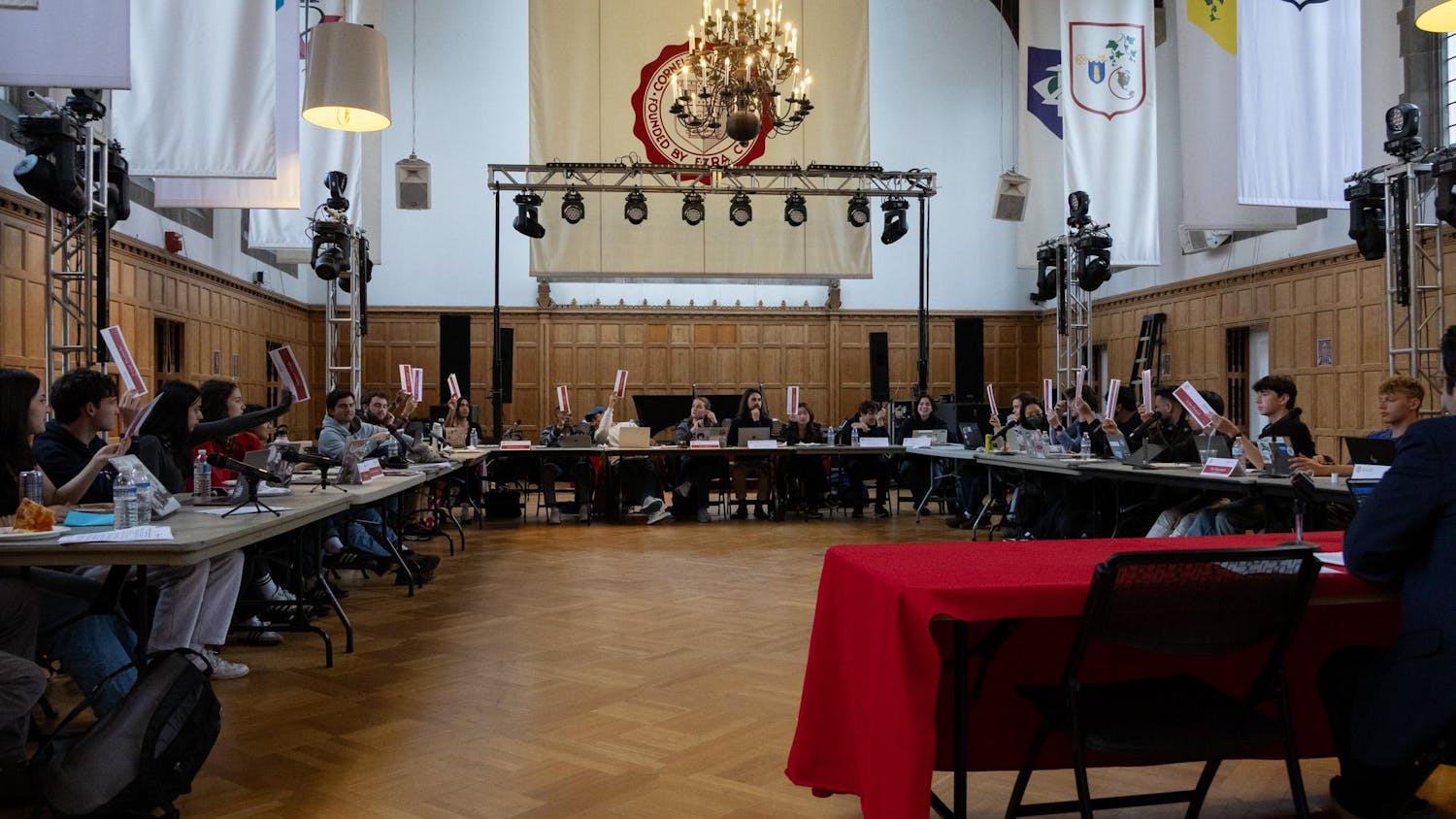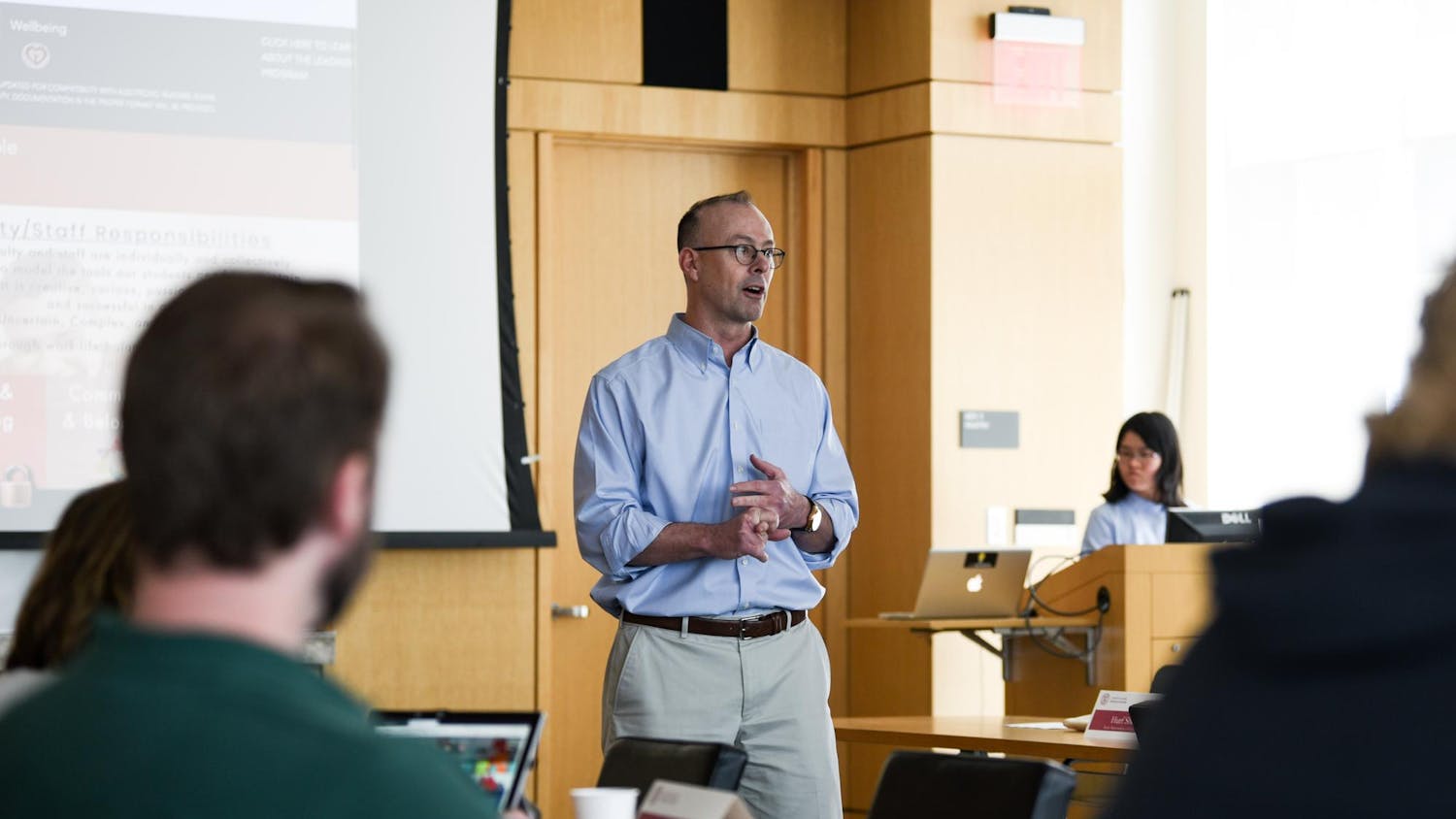Cornell University, the University of Pennsylvania and three other peer institutions requested investigation into potential misconduct by the attorneys representing student-plaintiffs in a price-fixing lawsuit that began in 2022.
The antitrust class action, Henry et al v. Brown University et al, accuses top universities of conspiring to reduce financial aid packages and skew admissions in favor of wealthier applicants over a 20-year period.
The plaintiffs allege that this slashed financial aid for approximately 200,000 students and overcharged them by $685 million through an illicit “price-fixing cartel.”
In a motion filed on July 1 in federal court, Cornell, the University of Pennsylvania, the University of Notre Dame, Georgetown and the Massachusetts Institute of Technology sought discovery — which is when a court collects information before trial — of the billing records belonging to plaintiffs’ counsel.
The motion raises concerns that the attorneys may have inflated their billing records to justify a disproportionately high percentage fee award at the expense of the plaintiffs. A percentage fee award is a method used to determine attorneys' fees, often in class action lawsuits, where the fee is calculated as a percentage of the total amount recovered for the plaintiffs.
The request stems from a June 19 court filing by attorney Peter Bach-y-Rita — one of the counsel for the plaintiffs — who accused plaintiffs’ counsel of ethical violations, including the submission of inflated billing records and placing their financial interests above those of the class.
Bach-y-Rita stated in his letter to the court that he raised these concerns with colleagues and co-counsel “in accordance with [his] ethical responsibilities” but was “unfortunately unable to [resolve the concerns]” with them.
Class counsel, including attorneys from Berger Montague and Gilbert Litigators & Counselors, strongly denied the allegations in a response letter filed the same day.
They asserted that Bach-y-Rita is involved in an employment and compensation dispute with his firm, Freedman Normand Friedland LLP, and that Bach-y-Rita’s counsel had used the allegations as leverage after mediation broke down.
According to the letter, Bach-y-Rita’s attorney — Jason Cyrulnik, a former FNF partner — threatened to publicize the misconduct claims unless the plaintiffs’ firms postponed an upcoming fee hearing.
“It is predictable but unfortunate that these Defendants would attempt to leverage vague, bogus, and unsupported allegations into a fishing expedition,” said Eric Cramer, chair of Berger Montague and lead class counsel, in a statement to Bloomberg Law. “Their pretextual concerns about wanting to protect members of the class from supposedly inadequate class council ring hollow…”
The lawsuit echoes a similar case from Cornell’s history. In 1991, Cornell and the seven other Ivy League schools were defendants in another federal antitrust lawsuit where they were similarly accused of colluding to fix financial aid, which then U.S. Attorney General Richard Thornburgh blasted it as creating a "collegiate cartel.”
All parties eventually settled with the Department of Justice, denying past price-fixing but agreeing to avoid it in the future.
Several defendants in the current litigation, including Yale, Columbia, Emory and Brown, have already reached over $284 million in settlements since the case was first filed.
Following those settlements, plaintiffs’ counsel, Robert Gilbert, stated in a press release that it “is past time for the presidents and governing bodies of the remaining defendants to … resolve the overcharges to middle-class and working-class students that stemmed from the twenty years of collusion on financial aid by elite universities.”
Cornell and the other nonsettling institutions continue to fight the claims and moved for summary judgment last month.
“Cornell disagrees with the plaintiffs’ selective and misrepresentative arguments,” a University spokesperson wrote in an emailed statement to The Sun regarding the lawsuit. "We will vigorously defend our record to show that we admit students based on their qualifications — regardless of their ability to pay — and that we meet their financial needs after individualized analysis with competitive aid packages.”
Cornell emphasized that the University continues to be committed to provide financial aid to students.
“Nearly half of Cornell undergraduate students receive financial aid," wrote the University spokesperson. "Over the last 20 years, we have more than tripled our annual grant aid, budgeting a record $459 million in fiscal year 2025. Our admissions practices and our consistent investment in financial aid have enabled us to provide an extraordinary education for students from all walks of life.”











